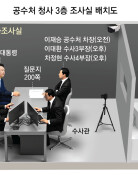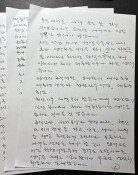'Korean prosecutors detain Jeon Seong-bae,' reports British newspaper
'Korean prosecutors detain Jeon Seong-bae,' reports British newspaper
Posted January. 03, 2025 07:53,
Updated January. 03, 2025 07:53
The involvement of figures linked to shamanism in the December 3 emergency martial law declaration has drawn significant attention from international media. “In South Korean politics, shamans are figures who claim to possess spiritual or supernatural influence and are believed to hold sway over political leaders,” reported The Independent, a British newspaper.
Among the figures implicated in the controversy is former military intelligence chief Noh Sang-won, who is reportedly an unofficial key player in the martial law-related developments. Once a top graduate of the Korea Military Academy and a rising star in the military, Noh was dishonorably discharged due to a sex scandal. Adding to the controversy, reports suggest Noh lived in a fortune-teller’s shop in Ansan, Gyeonggi Province, and visited another in Gunsan, North Jeolla Province, to ask whether former Defense Minister Kim Yong-hyun—his subordinate in the martial law chain of command—would betray him.
The controversy surrounding shamanism is self-imposed by President Yoon Suk Yeol himself. Early in 2022, Yoon was embroiled in a similar scandal involving a shaman named Jeon. “I met him through the introduction of my party’s official,” President Yoon said at the connection. “I heard Jeon is not a shaman but a Buddhist monk."
South Korea, a nation with the world’s 10th largest economy and a Nobel Literature Prize laureate, is often regarded as a cultural and technological powerhouse. Reflecting on my time as a foreign correspondent in Cairo in 2021, people I met noted that South Korea was admired as a role model in the developing world. One Egyptian told me that he thinks of Korea whenever he sees a movie featuring cutting-edge technology. But now, if I were asked what kind of country Korea is, I’d find myself at a loss for words.







